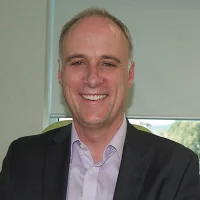Articles / In brief: GLP-1 agonists & primary prevention; RSV vaccine; smart watch & heart failure

GLP-1 receptor agonists are associated with fewer major adverse cardiovascular events than DPP4 inhibitors in older veterans with no prior heart disease, a retrospective cohort study reported.
The study published in Annals of Internal Medicine on 9 May included nearly 100,000 U.S. veterans with a median age of 67 who who had previously received a prescription for metformin, insulin or sulfonylurea, and then added a GLP-1 receptor agonist, SGLT-2 inhibitor or DPP-4 inhibitor.
The addition of a GLP-1 receptor agonist was associated with about a 20% reduced risk of major adverse cardiac events (MACE) and heart failure hospitalisation, compared to treatment with a DPP-4 inhibitor in patients with Type 2 diabetes and no prior heart disease.
SGLT-2 inhibitors did not reduce MACE and heart failure hospitalisation compared to DPP-4 inhibitors for primary heart disease prevention.
However in an accompanying editorial Dr Steven Nissen of the Cleveland Clinic urged caution in interpreting results, citing limitations including the length of follow-up.
The U.S. Food and Drug Administration has approved the first respiratory syncytial virus (RSV) vaccine for use in the United States. The vaccine – Arexvy – is approved for the prevention of lower respiratory tract disease (LRTD) caused by RSV in people 60 years of age and older. RSV is a major cause of morbidity and mortality. Clinical studies have demonstrated the vaccine is highly effective – reducing the risk of developing RSV-associated LRTD by 82.6% and the risk of developing severe RSV-associated LRTD by 94.1%.
The maker of the vaccine, GlaxoSmithKline Biologicals, has applied to the TGA for approval of Arexvy in Australia. The European Medicines Agency has also recommended a marketing authorisation of the Arexvy vaccine in the 60 plus age group.
A large scale study looking at data from around 83,000 participants in the UK who had undergone a 15-second ECG (comparable to those done on smart watches and mobile phones), found that people who had an extra beat in the short recording had a twofold risk of developing heart failure or atrial fibrillation over the next 10 years. An extra beat coming from the ventricles was linked to a twofold increase in later heart failure, while an extra beat from the atria was linked to a twofold increase in cases of AF. Lead author Dr Michele Orini says consumer wearable devices may help in detecting and preventing future heart disease, and if combined with AI, could help identify those at higher risk, and reduce the disease burden.

Alcohol Addiction Assessment and Advice

Premature Ovarian Insufficiency – The New Guidelines

Paediatric Allergic Rhinitis & Immunotherapy

Inhaler Devices

Increase
No change
Decrease
Listen to expert interviews.
Click to open in a new tab
Browse the latest articles from Healthed.
Once you confirm you’ve read this article you can complete a Patient Case Review to earn 0.5 hours CPD in the Reviewing Performance (RP) category.
Select ‘Confirm & learn‘ when you have read this article in its entirety and you will be taken to begin your Patient Case Review.
Webcast TONIGHT
POTS – What You Need to Know